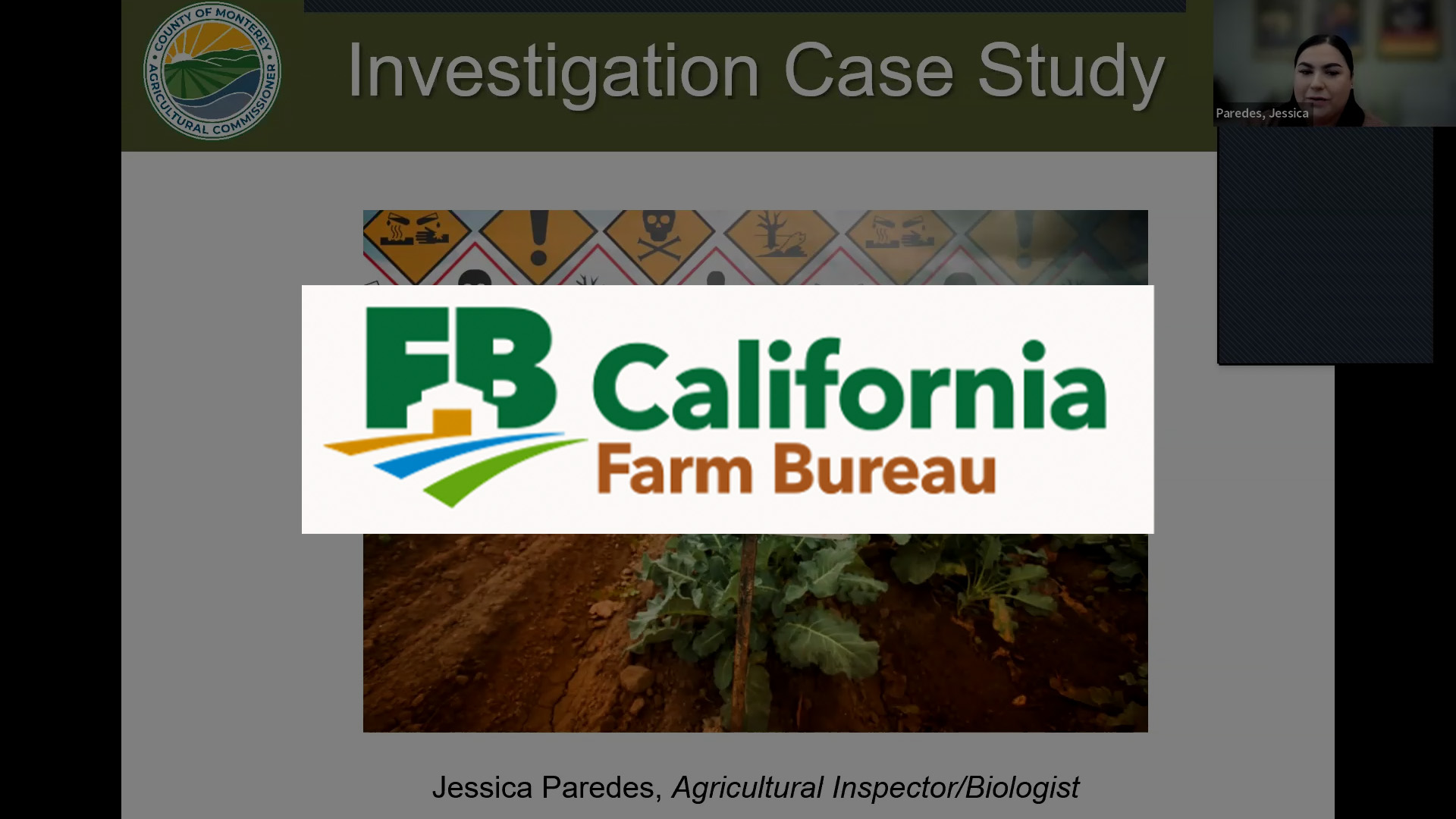Course Description
This course provides a real-world look at pesticide use enforcement through a detailed case study presented by a Monterey County Agricultural Inspector-Biologist. Participants will explore what constitutes a reportable investigation under California law, the key regulatory requirements for pesticide applications, and the serious implications of noncompliance. Using a recent incident involving multiple fieldworker exposures, the session highlights best practices for communication, emergency medical planning, and fieldworker training. Designed for growers, farm labor contractors, and ag professionals, the course emphasizes proactive strategies to prevent violations, protect workers, and stay compliant with the California Department of Pesticide Regulation (DPR).
Course Objectives:
By the end of this course, participants will be able to:
-
Identify what constitutes a reportable pesticide investigation in California, including human effects, environmental impacts, and economic loss thresholds.
-
Distinguish between state pesticide regulations and county-specific conditions, using Monterey County as an example.
-
Evaluate common violations in pesticide applications such as improper notification, unqualified trainers, and inadequate emergency medical response.
-
Apply DPR regulations related to fieldworker training, restricted entry intervals (REIs), and employer responsibilities for post-exposure medical care.
-
Implement strategies to improve inter-company communication, training compliance, and proactive planning to avoid costly violations and potential legal action.

